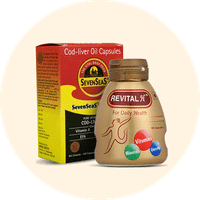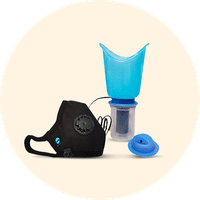Shelcal XT Tablet

Rs.390for 1 strip(s) (15 tablets each)
food interaction for Shelcal
alcohol interaction for Shelcal
pregnancy interaction for Shelcal
lactation interaction for Shelcal
food
alcohol
pregnancy
lactation
Shelcal XT Tablet should be taken with or after food.
None
None
CAUTION
Alcohol should be used with caution while taking Shelcal XT Tablet.
CAUTION
Shelcal XT Tablet is safe to use during pregnancy. Most studies have shown low or no risk to the developing baby.
SAFE IF PRESCRIBED
Shelcal XT Tablet should be used with caution during breastfeeding. Breastfeeding should be held until the treatment of the mother is completed and the drug is eliminated from the body.
CAUTION
SALT INFORMATION FOR Shelcal
Calcium Carbonate(1250mg)
Uses
Calcium Carbonate is used in the treatment of nutritional deficiencies.
How it works
Calcium Carbonate provides essential nutrients
Common side effects
Constipation, Increased calcium level in blood, Decreased phosphate level in blood, Milk-alkali syndrome, Abdominal bloating, Xerostomia, Acid reflux, Decreased appetite, Irritability, Vomiting, Nausea, Headache
Vitamin D3(2000IU)
Uses
Vitamin D3 is used in the treatment of Vitamin D deficiency and osteoporosis.
How it works
Vitamin D3 is a form of vitamin D. It raises vitamin D levels in your blood. This in turn raises calcium levels in your blood by helping you absorb more calcium from food.
Common side effects
Increased calcium in urine, Loss of appetite, Increased calcium level in blood, Itching, Rash, Urticaria, Facial swelling, Genital edema, Dry skin, Nail disorder, Erythematous rash, Decreased prothrombin level in blood, Difficulty in swallowing, Weakness, Fatigue, Sleepiness, Headache, Dryness in mouth, Metallic taste, Nausea, Vomiting
Methylcobalamin(1500mcg)
Uses
Methylcobalamin is used in vitamin B12 deficiency.
How it works
Methylcobalamin is a form of vitamin B12 that restores its level in the body thereby helping in treating certain anemias and nerve problems.
Common side effects
Decreased appetite, Diarrhea, Nausea, Rash
Pyridoxal-5-phosphate(20mg)
Uses
Pyridoxal-5-phosphate is used in the treatment of nutritional deficiencies.
How it works
Pyridoxal-5-phosphate provides essential nutrients.
Common side effects
Tingling sensation of extremity, Numbness of extremity, Headache, Sleepiness, Upset stomach, Paresthesia (tingling or pricking sensation)
SUBSTITUTES FOR Shelcal
73 Substitutes
73 Substitutes
Sorted By
 Rs. 363.75save 7% more per Tablet
Rs. 363.75save 7% more per Tablet Rs. 243.70save 8% more per Tablet
Rs. 243.70save 8% more per Tablet Rs. 309.38save 22% more per Tablet
Rs. 309.38save 22% more per Tablet Rs. 364.60save 10% more per Tablet
Rs. 364.60save 10% more per Tablet Rs. 227.92save 14% more per Tablet
Rs. 227.92save 14% more per Tablet
Expert advice FOR Shelcal
- Calcium Carbonate helps treat calcium deficiency.
- Do not take it within 1-2 hours of taking other medicines. Calcium may decrease the absorption of the other medicines.
- Do not take it within 2 hours of eating foods rich in oxalic acid (e.g. spinach), phosphate (e.g. bran), or phytic acid (e.g. whole cereals).
- Inform your doctor if you have problems with your kidneys.
Frequently asked questions FOR Shelcal
Calcium Carbonate
Q. What is supracal/shelcal 500/cipcal 500?
Shelcal, supracal, cipcal contain calcium carbonate along with vitamin D3
Q. What is it used for?
These preparations are used as a calcium supplements
Q. Is calcium carbonate/shelcal 500 chewable?
Yes, however it depends on dosage form available. If it is an oral tablet it has to be swallowed
Vitamin D3
Q. Is it better to take Vitamin D3 at night or in the morning?
You can take Vitamin D3 at any time of the day, morning, or night. However, there is limited information available about the best time to take Vitamin D3. Take it exactly as advised by your doctor.
Q. What are the benefits of taking Vitamin D3?
Vitamin D3 is important for maintaining bone health, support the health of the immune system, brain, and nervous system. It also regulates insulin levels and is also important for a healthy heart and blood vessels.
Q. How should Vitamin D3 be taken?
Vitamin D3 should be swallowed whole with water and should not be crushed or chewed. It is advised to take it with the main meal of the day to increase its absorption.
Methylcobalamin
Q. What is Methylcobalamin?
Methylcobalamin contains vitamin B12. Vitamin B12 is an essential nutrient which is required by the body to make red blood cells and maintain a healthy nervous system. It is also important for releasing energy from food and using vitamin B11 (folic acid).
Q. Why can’t I get sufficient vitamin B12 from my diet?
You can get vitamin B12 from sources like meat, fish, eggs and dairy products. While people who are vegetarian or vegan may not get Vitamin B12 as it is not found naturally in foods such as fruits, vegetables and grains. Therefore, deficiency of Vitamin B12 is usually noticed in vegetarians or vegans.
Q. What happens if I have vitamin B12 deficiency?
Deficiency of vitamin B12 may cause tiredness, weakness, constipation, loss of appetite, weight loss and megaloblastic anemia (a condition when red blood cells become larger in size than normal). It may also lead to nerve problems such as numbness and tingling in the hands and feet. Other symptoms of vitamin B12 deficiency may include problems with balance, depression, confusion, dementia, poor memory and soreness of the mouth or tongue.

















